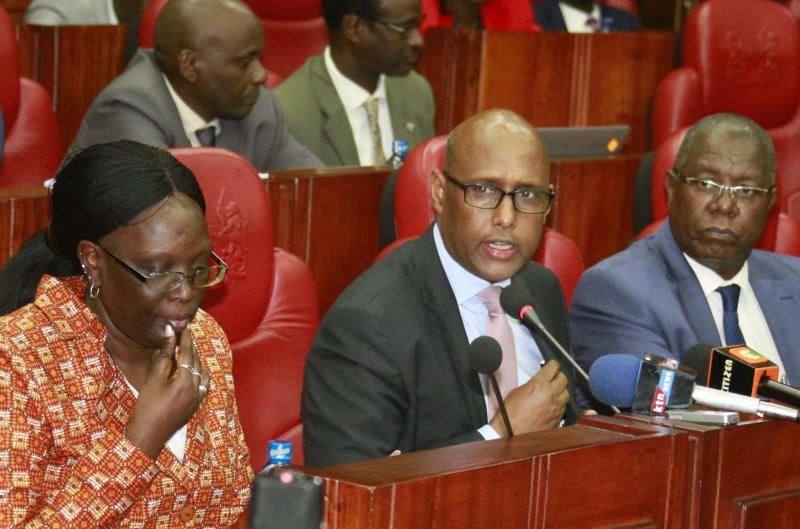
Cabinet Secretaries engaged in a blame game during a heated parliamentary committee session yesterday, where results confirming sugar was contaminated were tabled. There were claims that blacklisted companies were cleared to import the commodity.
Agriculture CS Mwangi Kiunjuri, who appeared before a joint parliamentary committee that is probing how suspected contraband sugar found its way into the country, first blamed the National Treasury for opening a window for unregulated imports that was exploited by unscrupulous traders to flood the market with the hazardous commodity.